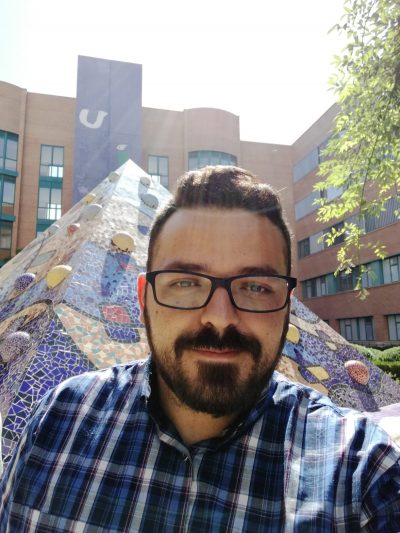
Thiago Marinho Duarte, 33, has a solid background to work in teaching and research. The Paraiban, born in Campina Grande, did a bachelor’s, master’s and doctorate in Chemistry, in addition to a specialization in teaching methodology in Chemistry and Biology. Thirteen years were dedicated to his scientific education.
However, since defending his doctorate in Chemistry at the Federal University of Paraíba (UFPB) in February this year, his plans to become a research professor have been put “in the freezer”. In order to pay the bills, he used the knowledge learned in his adolescence, in technical courses, and started to work as an electrician.
In September, he passed a selection process by the municipality of Conde, in the metropolitan region of João Pessoa, to work on the front to fight Covid-19, dealing with various issues, from analyzing water reports to raising awareness about the pandemic. In this way, he achieved financial stability for a few months (the contract ends at the end of December) while continuing to look for opportunities in order to return to his scientific career.
Usually, the step following the completion of a doctorate is a post-doctorate, which can be understood as a temporary job as a “junior scientist”. In Brazil, this phase of the career usually occurs in university research groups and is usually paid through scholarships, funded by government research agencies, either federal (such as CNPq or Capes) or state funded.
“I submitted research projects in two CNPq calls for selection of postdoctoral fellows,” says Thiago. “In both cases I was evaluated with a score close to the maximum (above 9.5), but I was informed that I would not receive the scholarship due to budget limitations,” he laments. In fact, the number of postdoctoral fellowships from federal agencies has been decreasing consistently since 2015, as previously shown by B-MRS.
In the middle of the pandemic, Thiago participated in four selective processes of higher education institutions in the states of Paraíba and Rio Grande do Norte for substitute lecturer – a temporary position that would allow him to remain in his professional area and get an income. But he was not selected. “The competition was very strong,” he says. In addition, he enrolled in a selective process for effective professor at the campus of the city of Areia at UFPB, but the selection has not yet been carried out due to the pandemic.
Thiago also considered entrepreneurship. He looked fondly at his undergraduate memories, when he began to produce and sell detergents, and thought that producing sanitizers would not be a bad idea for a chemist in a time of pandemic infectious disease. But this idea also ended up “in the freezer” given the difficulties Thiago faced to obtain bureaucratic information, necessary to start the initiative.
First university student in the family
“My first vocation was teaching,” says Thiago. In high school, he was good in courses in the Exact Sciences area. In the last year, after helping some colleagues understand a subject and pass the exam, he realized that he could dedicate himself to teaching. So, even without any family references (Thiago’s parents are salaried employees without higher education and he was the first person who attended college among all his relatives), he decided for a degree in Chemistry at the State University of Paraíba (UEPB).
After his graduation, in 2011, Thiago noticed that there were many selection processes in universities and federal institutes, and that they all required a master’s and/or doctorate degree. So he believed he should leave Campina Grande for postgraduate studies at UFPB, always in the Chemistry area.
That decision brought him many rewarding experiences, as well as personal and professional growth. In the master’s degree, Thiago was delighted to discover that the concepts learned in class became palpable in the laboratory, and that he could make his own contribution to the advancement of knowledge. In his PhD, he immersed in the world of computer simulations to study semiconductor materials that can be used for environmental remediation, which gave him the opportunity to go abroad for the first time to carry out part of the research at a Spanish university, with financial support from Capes.
“The contact with the real world of experiments and with the ideal world of simulations made me mature,” reflects Thiago. “And the experience abroad allowed me to grow as a person and as a researcher; it is something I recommend to everyone who has the opportunity,” he adds.
Currently, in addition to working on the front to fight Covid-19, Thiago is writing a research project to work in a group in the state of São Paulo. Once again, he will try to get a postdoctoral fellowship. In addition, Thiago is preparing to participate in another substitute-lecturer selection process, this time at the Federal University of Pernambuco (UFPE).
“I want to exhaust all possibilities in the country, but I don’t rule out going abroad,” says Thiago. “It is a pity that the government of Brazil has no interest in investing in knowledge and technology generation.”
